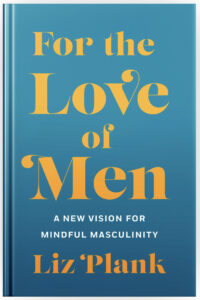Four months ago, I was convinced I was living in a two-gender-only world. My own personal experience was not enough to understand that this idea was not the entire truth. The truth was, there were other realities beyond the one I had always experienced. I was able to further understand this idea through my own self-awareness and of course the Intro to Women’s and Gender Studies class. When I first came across this class subject, I saw it as just an option but little did I know that it would become so much more. Honestly, I was hesitant at first. I had this one thought: what about gender would I learn that I don’t already know? But looking back at it now, that was very naïve of me to have said to myself. From there I first learned that there is always an opportunity to learn and room for growth and that would mean learning to understand better. This is exactly what I experienced with this Women’s and Gender Studies class.
While I did have a personal interest in learning more about gender studies by doing my own independent research, I was mainly focusing on the gender studies for men and the toxic masculinity society has implemented. However, I knew there were more subjects related to gender out there to explore. For instance, the idea that women and men face gender performing expectations because of society’s standard that pairs sex and gender. This is very true when it comes to women performing femininity and men with masculinity. While both expectations have raised a lot of issues in the years to come, women have successfully implemented feminist movements and actions to help fightback from the limiting society standards held for women. However we rarely ever mention the progressive actions we could take for men in their own community. This is why I chose to write about this specific subject in my blog post. Although this time it felt daunting. For starters, I didn’t want to appear to offend or insult anybody for their personal beliefs. It took some time to change the narrative of this thought. It finally overturned when I committed to believing my intentions to inform rather than to talk down an audience with this subject. Besides the fact that the blog post was an assignment, it felt very empowering to share information about something so important. The courageous part of it all had to be the idea that it would be a public post and not a typical essay only to be submitted and given one source of feedback. It was a great opportunity to have my classmates participate in my writing and vise versa. Also worth mentioning creating bonds with people who felt the same way about the issues at hand. It felt very reassuring and collaborative.
The feeling doubled when the group research projects began. The research project offered a lot of interesting topics to choose from, my group and I were fortunate enough to focus on the matters of reproductive rights. I mention fortunate because this topic never gets old, there is always something new to learn about the overall subject and what ideas can be brought into reproductive justice. In addition, there are other neighboring subjects with this topic including but not limited to; sex-positivity, gender, politics, and law. My group and I were able to have a mutual understanding of the hundreds of issues related to this subject and by doing so we were then able to unify our thoughts in an organized presentation. The only roadblock we faced as a group was figuring out who would discuss which specific angle of reproductive justice would we discuss.
Overall, this class has been a wonderful experience. From the readings, discussions, and the newfound knowledge. I had worries regarding what ideas would be difficult to accept. Especially since this has been my first semester back in college. It was a great way to start this new chapter of information. I had previously finished my associate degree back in 2018 and majored in marketing. While it was very insightful regarding business and the principles of capitalism, this time around, majoring in psychology and participating in this class has helped me in more ways than I ever expected. It opened a new part of life to understand. Gender truly is all around us. Gender is definitely a myth. And more importantly, while we can have opinions, it’s better to have an educated opinion. Therefore, thank you very much Professor Hashton for this opportunity to learn and grow.



